Common Risk Factors That Can Lead To A Heart Attack
What are the most common risk factors that lead to heart attacks?
Since 1958, we have built our reputation on a tradition of authenticity and exceptional care. We not only treat our patients’ physical needs, but treat them with compassion and respect. By combining extraordinary medical expertise and facilities with an environment where people are truly valued, our patients receive a superior healthcare experience every time.
Smoking
Most cases of heart disease are caused by coronary artery disease, commonly referred to as “hardening of the arteries.” Because arteries are responsible for supplying blood to the heart, anything that causes these pathways to narrow or close can lead to a heart attack by stopping the blood supply. Studies have shown nicotine found in cigarettes can destroy the cells that line the coronary arteries and elevate blood pressure, resulting in additional stress being placed on the heart.
Lack of Exercise
One cause of artery buildup is poor circulation. Aerobic exercise helps improve the heart’s ability to pump blood, enabling it to supply oxygen more efficiently to the rest of the body.
Obesity
People who have excess body fat, especially concentrated in the waist area, are more likely to develop heart disease, stroke and diabetes. Excess weight causes the heart to work harder. It also raises blood pressure and triglyceride and cholesterol levels while lowering “good” HDL cholesterol. It’s no secret that losing weight is difficult, but shedding as few as 10 pounds can lower the risk for heart disease.
Elevated Cholesterol
Cholesterol is a fat-like substance made in the liver and is also found in certain foods made from animals (e.g., meat, dairy, eggs). Although a certain amount of cholesterol is necessary for bodily functions to occur, an overabundance can have detrimental effects. A blood test can determine whether or not cholesterol is under control and, if not, changes in diet and/or medication may be in order. A physician can help design individualized treatment plans.
Stress
Stress can be cumulative and ultimately can lead to high blood pressure, heart disease and other physical side effects. Eliminating all of life’s stressors is nearly impossible, but certain measures can reduce their effects on the heart. Yoga, breathing exercises, walking and taking breaks at work are just a few ways to help calm the body’s harmful reaction to stressful situations.
High Blood Pressure
High blood pressure increases the risk of coronary artery disease, which is essentially a buildup of fatty matter known as “plaque” that, over time, leads to narrowing of these pathways. People with high blood pressure are more likely to develop coronary artery disease because of the extra pressure placed on the walls of the arteries. Over time, the arteries can become damaged, narrowed and hardened by these fatty deposits.
Diabetes
Diabetics are at much greater risk of a heart attack than those without the disease. High levels of sugar in the blood system can narrow the coronary arteries that supply oxygenated blood to the heart. Because of this, it is important for diabetics to keep their condition under control and maintain a healthy weight.
